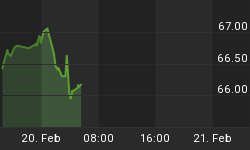As the U.S. business environment takes a decisively anti-Chinese stance, Best Buy’s move to drop Huawei smartphones from its sales portfolio becomes the latest in a string of rejections following intensifying government fears of a national security threat.
Over the next few weeks, Best Buy will stop selling Huawei products, media reported, citing unnamed sources.
Best Buy has not confirmed the move, issuing only a media statement saying: “We make decisions to change what we sell for a variety of reasons.”
As one of Huawei’s biggest retail partners, the loss of Best Buy will be a big hit for the Chinese tech giant, which has already been locked out of the American carrier market.
Huawei has been struggling to defend itself in an increasingly unfriendly market, which is now tainted by a presidential order to impose $50 billion in tariffs on yet-to-be-determined Chinese products.
It’s also a market governed by an administration that is on the warpath to protect American business—and technological innovation—from theft and infiltration.
Huawei is the third-largest smartphone company in the world, after Samsung and Apple, but its push to sell phones in the U.S. this year has been blocked at almost every step.
Earlier this month, the heads of major U.S. intelligence agencies warned American citizens against using products and services made by Chinese tech giants Huawei and ZTE.
Last month, Republican senators introduced legislation to block the U.S. government from buying or leasing telecoms equipment from Huawei or ZTE.
U.S. national intelligence views Huawei as an arm of the Chinese government, which has allegedly engaged in corporate espionage to steal technology from U.S. companies and potentially spy on Americans. Related: Elon Musk’s $2.6 Billion Tesla Challenge
Huawei has denied all suggestions that it is working towards a Chinese government agenda of any sort. Huawei has called such reports “baseless”.
Richard Yu, CEO of Huawei's consumer business, told reporters earlier this month that competitors, worried about its strength, were restoring to politics to kick the company out of the U.S. market.
The Best Buy move comes just over a week after the U.S. administration effectively killed Singapore-based Broadcom’s $140-billion hostile takeover bid of U.S. chipmaker Qualcomm (NYSE:QCOM) on the grounds that it would weaken America’s strategic advantage.
U.S. authorities were concerned that a hostile takeover would halt research and development at Qualcomm in favor of short-term profits—a situation that would threaten America’s leadership position in the semiconductor industry.
Without Best Buy, prospective customers will be able to purchase Huawei smartphones at Walmart, without a connected wireless plan. In January, Huawei failed to close a landmark deal with AT&T under pressure from the government.
The atmosphere is not expected to improve for Huawei or other Chinese tech giants in the wake of $50-billion tariff package for Chinese products, with specific targets set to be released in two weeks.
On Thursday, Huawei announced that is considering the development of a smartphone that will be able to run blockchain-based applications, Bloomberg reported.
By Tom Kool for Safehaven.com
More Top Reads From Safehaven.com:

















